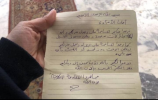AbdulQadir7
FULL MEMBER

- Joined
- Aug 7, 2024
- Messages
- 1,238
- Reaction score
- 0
- Country
- Location
The recent developments in the ongoing conflict between Israel and Hezbollah have led to claims that Hezbollah has effectively "won" the 2024 Lebanon-Israel war. Reports indicate that Hezbollah launched a massive barrage of rockets, striking various Israeli cities and military sites, contributing to significant casualties among Israeli forces.
Key Points:
- Rocket Barrage: Hezbollah reportedly fired 150 rockets in a coordinated attack targeting key locations, including Tel Aviv and military installations. This escalation has resulted in numerous injuries and heightened tensions in the region.
- Israeli Military Response: In response to the attacks, Israeli Prime Minister Benjamin Netanyahu is facing increasing pressure from military leaders for a ceasefire. Generals have cited troop fatigue and the need for a pause in operations due to the prolonged conflict and resource limitations.
- Casualties and Military Strain: The Israeli Defense Forces (IDF) have acknowledged significant losses, with reports of up to 22 soldiers killed in specific operations against Hezbollah. This has raised concerns about the effectiveness of Israel's military strategy and its ability to sustain operations against a resilient adversary.
- Ceasefire Negotiations: Amidst these developments, Netanyahu is reportedly considering a ceasefire with Hezbollah. This decision is influenced by internal pressures and the recognition that continuing military operations may not yield the desired outcomes. The IDF has faced challenges in achieving its stated objectives, including claims of destroying 80% of Hezbollah's weaponry.
- Political Implications: Netanyahu's potential agreement to a ceasefire could have significant political ramifications, as it may be perceived as a concession or failure to decisively defeat Hezbollah. This situation places him in a precarious position domestically, where public sentiment may shift based on perceptions of military success or failure.






